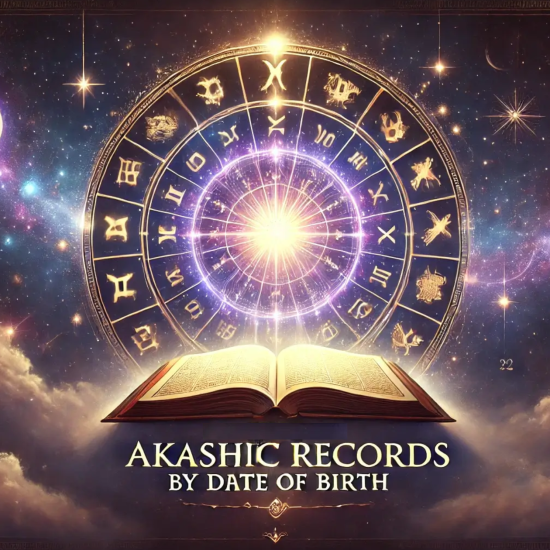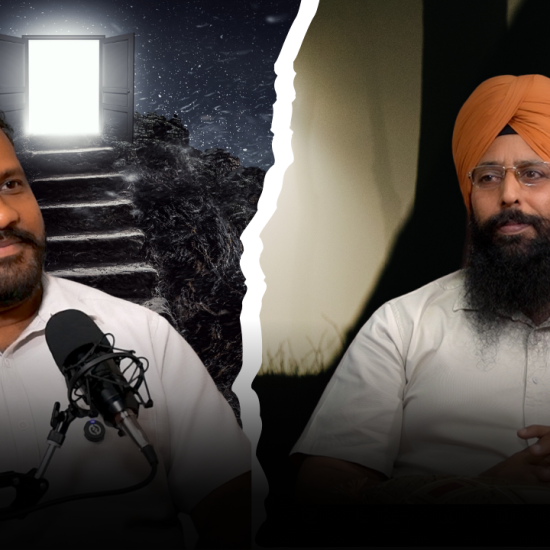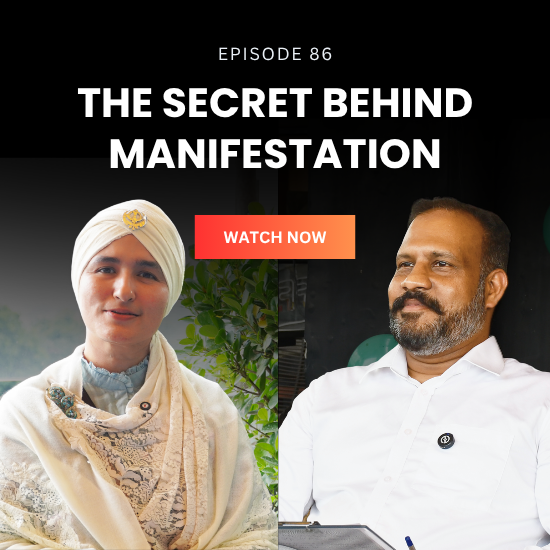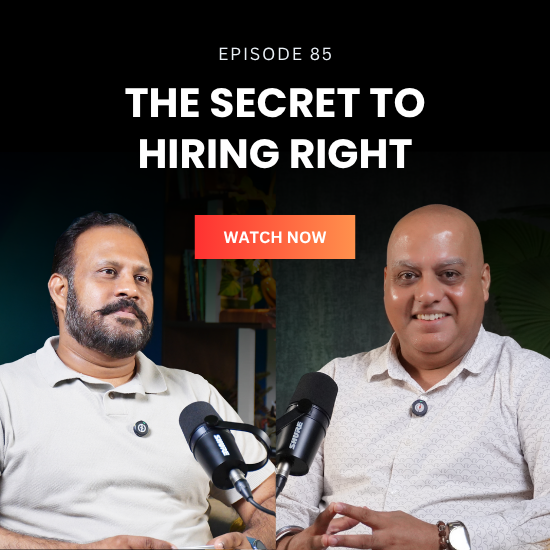In this powerful and thought-provoking episode of The Alpha People Podcast, host Naveen Kumar Verma sits down with Dr. Yukteshwar Singh Bajwa, a spiritual researcher and thinker, to explore the fascinating intersection of science, spirituality, and the journey of the soul. The conversation opens with a deep dive into life after death, where Dr. Bajwa shares real experiences of patients who, under anesthesia or in coma, felt their soul detach from the body—raising profound questions about consciousness and its existence beyond physical life.
Dr. Bajwa explains the concept of the seven chakras, not just as spiritual energy points but as scientifically connected systems tied to human consciousness. He bridges the gap between modern neuroscience and ancient wisdom, suggesting that the soul and mind interact through microtubules in the brain, and this interaction may explain how thoughts, emotions, and even out-of-body experiences occur. He emphasizes that chakra activation is not just about meditation or breathwork—real transformation only happens when the soul itself moves through each chakra with awareness.
The discussion then expands to death rituals across cultures, including those found in Hinduism, Islam, African tribes, and even Indonesia, where some communities preserve the dead body for a year as part of a sacred celebration. Dr. Bajwa references the Garuda Purana, which details the soul’s journey after death through different planes or “plates,” facing consequences based on karma and actions from past lives. The importance of rituals like Pind Daan and 13-day mourning periods are explained as ways to help the soul transition peacefully.
A major focus of the episode is the concept of rebirth and soul families. According to Dr. Bajwa, the soul often returns with the same group of souls across lifetimes, taking on different roles—mother, friend, sibling—based on the lessons it needs to learn. He also touches on past life regression, which can sometimes take individuals back through multiple incarnations, showing how souls consciously choose their next life path based on karma, desires, and spiritual evolution.
The podcast doesn’t shy away from discussing dark energies either. Dr. Bajwa explains how some souls, due to intense attachment, anger, or unfulfilled desires, fail to move on and become trapped in the preta (ghost) state, potentially causing disturbances to the living. However, he also clarifies that not all wandering spirits are negative—pitra (ancestors) can also act as spiritual guides, influencing our lives and helping us evolve.
Ultimately, the episode brings home the message that life is a temporary classroom, and death is not an end but a continuation. The goal of the soul is not just to escape suffering, but to reach moksha, where it merges back with the supreme consciousness—free from ego, desire, and the cycle of birth and death. This conversation leaves listeners with a renewed understanding of life’s purpose and a deeper curiosity about the mysteries that lie beyond.
🔔 Don’t forget to subscribe & share if this conversation resonated with you!
🔔 Don’t forget to subscribe & share if this conversation resonated with you!
Frequently Asked Questions
Certainly! Here are some potential questions and answers based on the podcast conversation:
After death, the soul begins a journey that depends on its karmas and attachments. It gets 13 days to roam near its loved ones before proceeding to the spiritual realm. Rituals like Pind Daan help the soul detach from the physical world. Based on karma, it moves through spiritual "plates" (levels) and eventually takes rebirth or achieves moksha.
Yes, chakras are both spiritual and biological centers. Each chakra connects to specific emotions and aspects of consciousness. Activation isn't just through breathing or mudras; true activation happens only when the soul consciously travels through the chakras.
Yes, studies involving patients under anesthesia or in coma reveal common experiences like seeing tunnels, light, or feeling detached from the body. Scientists have also found that brain microtubules may act as a medium for consciousness, suggesting the soul interacts with the body at a cellular level.
Souls with strong desires, anger, revenge, or attachments may not move on. They become preta or wandering spirits. These souls can affect the living until they find closure. On the other hand, pitra (ancestral spirits) are not negative—they guide and protect us spiritually.
The soul chooses its next life based on karmic debts and lessons it wants to learn. It decides its family, situation, and challenges even before birth. It’s like selecting a syllabus for the next spiritual class.
Rituals like burning the body, Pind Daan, and 13-day ceremonies have deep spiritual significance. They help the soul realize it has left the body and prepare it for transition. Different cultures have different methods, but the purpose is always to aid the soul’s release.
Moksha is liberation from the cycle of birth and death. A soul achieves it by letting go of ego, desires, anger, and attachments. The journey involves thousands of lifetimes. The more refined and selfless the soul becomes, the closer it gets to merging with the divine.






